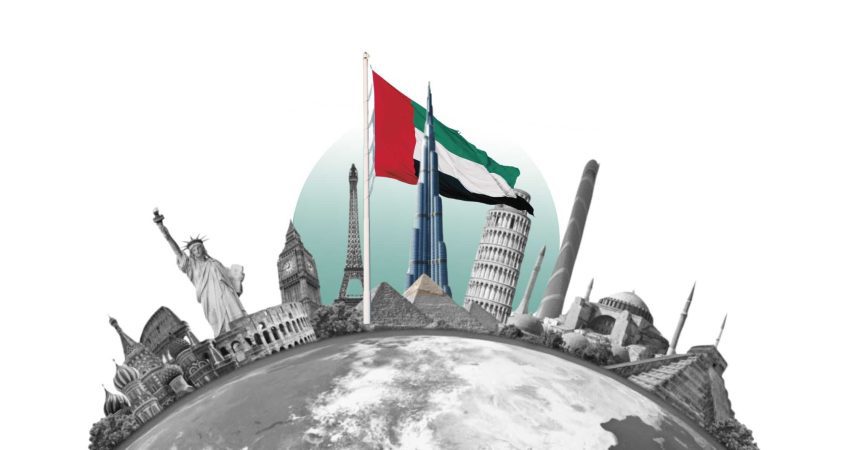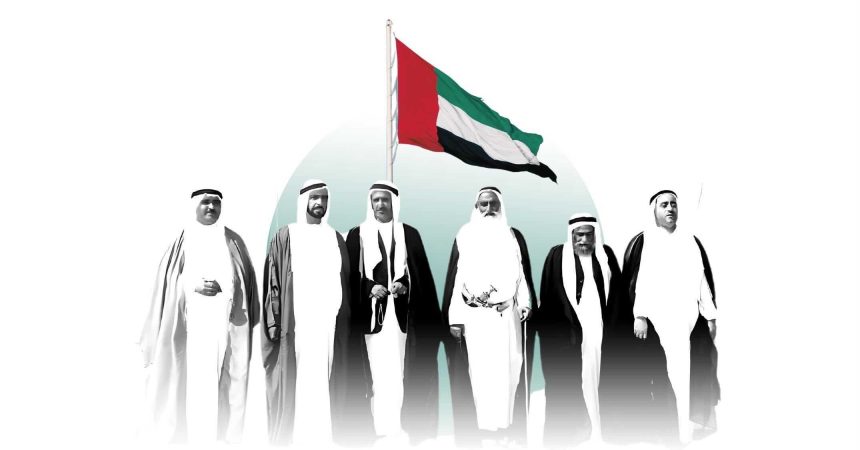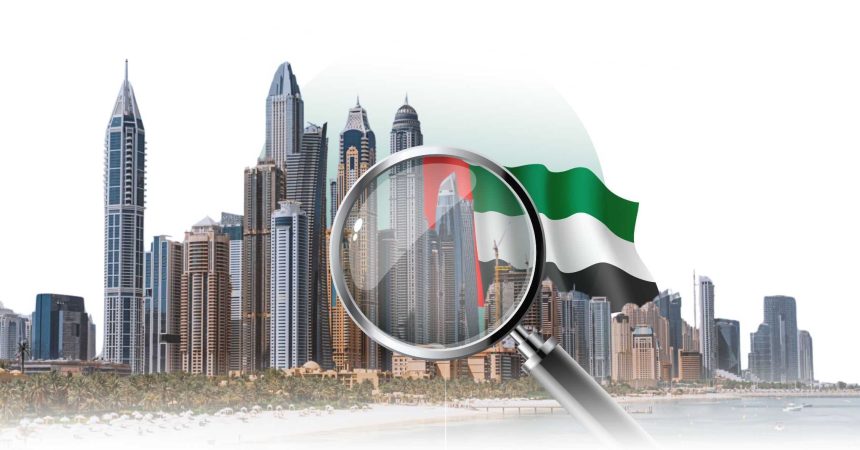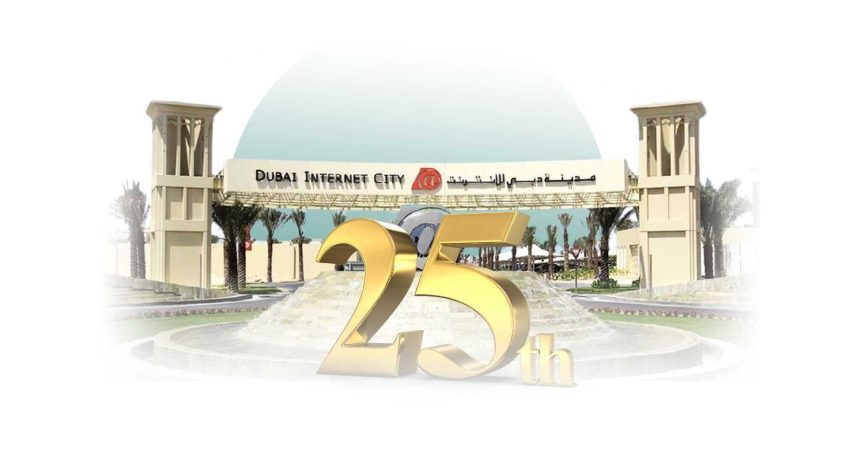How Does the UAE compare to other countries ?
Today, we will take a look at the UAE competitiveness globally.
The UAE is a relatively small country with a population of around 10 million people.
But its influence and impact on the global stage are undeniable.
The UAE has emerged as a global powerhouse across numerous sectors.
Due to its strategic location, booming economy, and cultural richness.
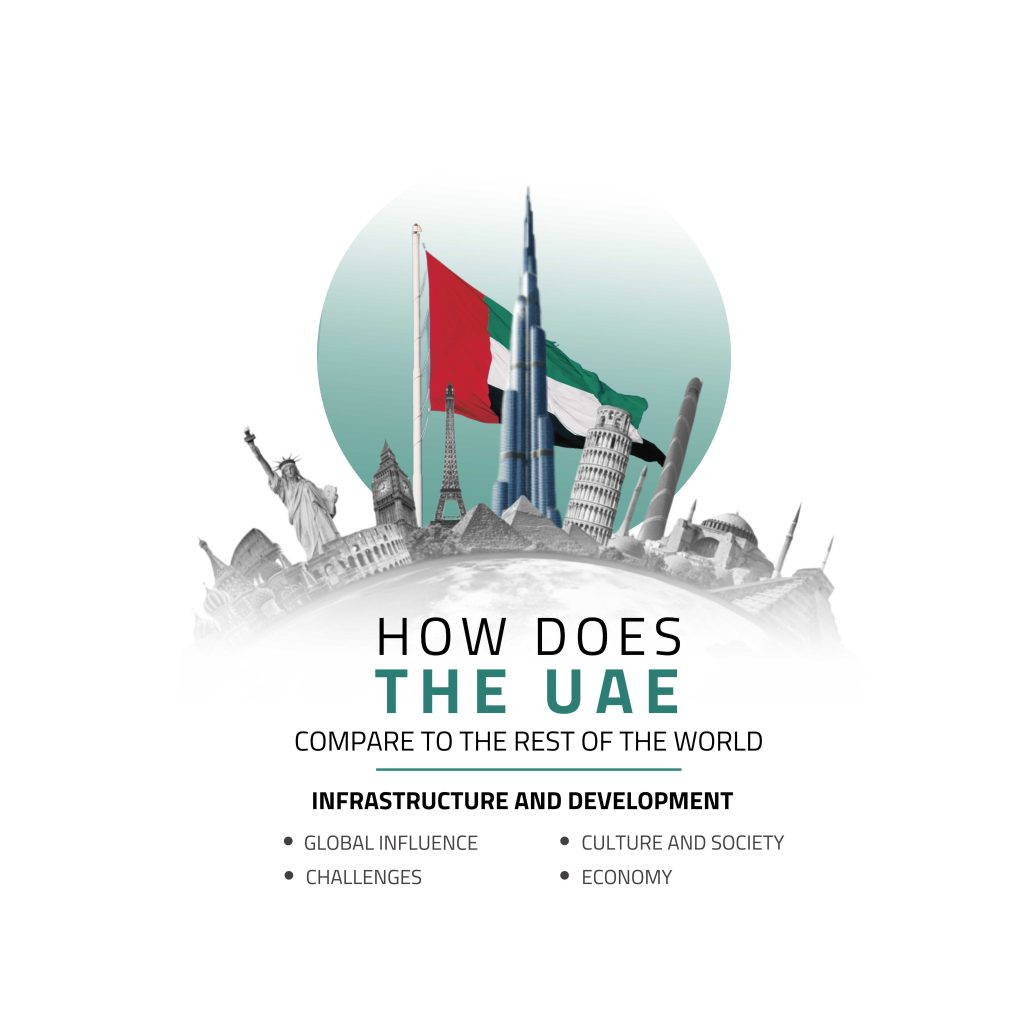
How Does the UAE Economy Compete Globally ?
1. High GDP per Capita and Wealth
According to data from the International Monetary Fund (IMF), the UAE’s robust financial reserves and diversified economy help maintain its economic resilience.
Moreover, the country has on of the world’s highest GDP per capita figures, and it ranks among the top 20 countries in terms of wealth.
While Dubai and Abu Dhabi, the UAE’s most notable cities, contribute significantly to this figure.
As their high-income levels are the result of massive investments in infrastructure, real estate, tourism, and technology.
2. Oil Production and Diversification
The UAE is a modern economic hub, due to its growth in various sectors, such like finance, real estate, tourism, and technology
Mentioning that UAE’s economy has been heavily reliant on oil, which made it an important global oil producer.
In the recent year, the UAE has worked to reduce its dependence on oil revenues.
This is through a comprehensive economic diversification strategy.
Accordingly, Dubai has become a global financial center, attracting businesses and investments from around the world.
3. Trade and Logistics Hub
The UAE serves as a crucial trade and logistics hub, because it is strategically positioned between Europe, Asia, and Africa.
Its ports, such as Jebel Ali, rank among the busiest in the world.
Adding that it is an attractive location for businesses looking to access regional and international markets.
Due to its world-class logistics infrastructure, free trade zones, and favorable trade policies.
As per the UAE Federal Competitiveness and Statistics Authority, trade activities contribute substantially to the nation’s GDP, underscoring the UAE’s role in global commerce.
UAE Culture and Society: A Unique Blend
1. Multicultural Population
Expatriates are making up around 88% of the UAE’s population, making it one of the world’s most diverse nations.
It has unique blend of traditions, languages, and lifestyles.
With multicultural environment that brings together people from all over the world.
As a result, the UAE has become a center for international collaboration and cultural exchange.
For example, Dubai annual Global Village event is showcasing food, art, and products from over 90 countries.
2. Balance of Tradition and Modernity
Islamic traditions play a significant role in the social and cultural landscape.
The country has also developed a reputation for tolerance and openness to different cultures and religions.
This blend of traditional values and modern influences is evident in everyday life, from architecture to cuisine.
The UAE has also designated 2019 as the “Year of Tolerance,” reflecting its commitment to fostering an inclusive society.
3. Quality of Life and Modern Amenities
The UAE high quality of life gives access to world-class amenities like luxury shopping malls, fine dining, healthcare, and entertainment.
Cities like Dubai and Abu Dhabi have skyscrapers and advanced public transportation.
As well as numerous recreational options.
All of this development made the UAE attractive for tourists and expatriates alike.
Mentioning that Dubai consistently ranks among the top cities in the Middle East for quality of life.
Infrastructure and Development
1. Modern and Sustainable Infrastructure
The UAE’s infrastructure is known for its quality and modernity.
The country has invested heavily in infrastructure development, from the extensive metro systems in Dubai to the futuristic Burj Khalifa.
Moreover, the UAE is a pioneer in sustainable urban planning, with projects like Masdar City, an eco-friendly city near Abu Dhabi that relies entirely on renewable energy.
2. Technological Innovation and Smart Cities
The UAE has invested in smart city initiatives during its pursuit of technological leadership.
Dubai aims to become one of the world’s smartest cities.
By incorporating artificial intelligence (AI), the Internet of Things (IoT), and blockchain technology into public services.
The nation aims to embrace innovation to enhance the quality of life for its residents and promote economic growth, which is part of the UAE’s Vision 2021.
Global Influence
1. Political and Diplomatic Role in Mena Region
The UAE plays a significant role in the Middle East and North Africa (MENA) region.
By its strong diplomatic relations with countries worldwide.
Moreover, it has been actively involved in peace and humanitarian efforts, taking the position of a stable and neutral country.
With contributions to regional stability and development, through participation in international organizations.
Such as the United Nations (UN), the Arab League, and the Gulf Cooperation Council (GCC).
2. Contributions to International Organizations and Events
The UAE is constantly hosting international events.
Such as the Dubai Expo 2020, which brought together more than 190 countries.
The UAE has memberships with major international organizations global.
Supporting its influence extension beyond the region.
Mentioning that it will continue to be influential in global discussions on issues like climate change, economic development, and regional security.
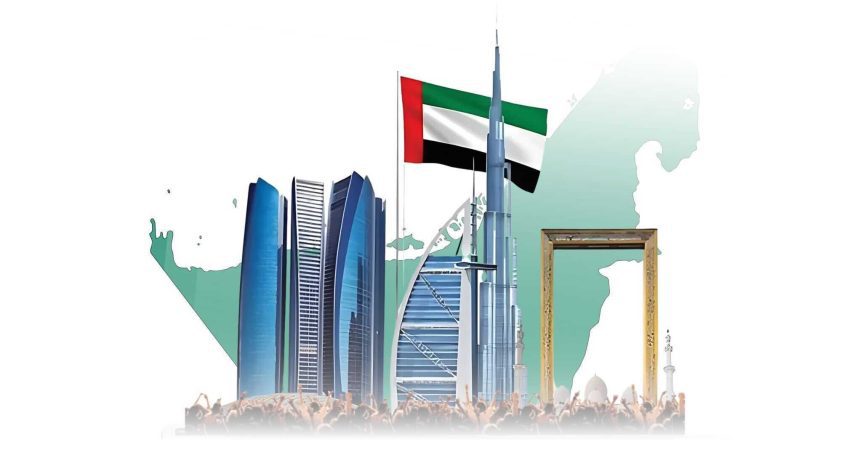
Challenges
1. Oil Dependency
The UAE has made significant progress in economic diversification, even oil revenue still constitutes a considerable portion of its GDP.
As a result, fluctuating oil prices pose a potential risk to the nation’s economy.
The UAE’s diversification strategy is gradually reducing this dependency, with long-term goals to develop a knowledge-based economy.
2. Environmental Challenges and Water Scarcity
The UAE faces water scarcity issues, due to its climate.
Mentioning that the UAE relies heavily on desalination, which is energy-intensive and costly.
Environmental sustainability is a growing concern, prompting the UAE to adopt measures to combat water scarcity.
Including investments in desalination technology and water conservation programs.
3. Rapid Urbanization and Social Challenges
Rapid urbanization in cities like Dubai and Abu Dhabi has led to challenges such as increased traffic congestion, housing demands, and social adjustment issues for both locals and expatriates.
Balancing rapid development with preserving cultural heritage and ensuring social cohesion is an ongoing challenge for the UAE government.
The UAE has invested more than AED 150 billion, of which AED 45 billion is in clean and renewable energy, while we plan to invest another AED 500 billion in the energy sector over the next 30 years, to achieve climate neutrality. pic.twitter.com/LgDOJ2araV
— UAE Voice (@uae_voiceeng) November 1, 2024
Global Leader
In fact, the UAE is a unique example of rapid growth, economic power, and cultural richness.
Moreover, its high GDP per capita, advanced infrastructure, and commitment to innovation have transformed it into a global leader in sectors such as trade, finance, and tourism.
Adding that the country’s ability to embrace multiculturalism, tolerance, and modernity.
While preserving its traditions has contributed to a high quality of life and a stable society.
However, the UAE faces challenges like economic reliance on oil, water scarcity, and social integration.
Its Vision 2030 and other long-term strategies highlight the UAE’s commitment to overcoming these challenges.
Further strengthening its role as a dynamic and influential nation in the 21st century.
The UAE is well-positioned to maintain its growth trajectory and global standing in the years to come.
Through continued innovation, strategic economic planning, and a focus on sustainability,


